This is perhaps the most fudged travel prohibition issued by the United States: “Tourist travel to Cuba is prohibited under U.S. law for U.S. citizens and others under U.S. jurisdiction.”
Despite the travel ban for American tourists (thanks Cuban embargo), the number of American travelers to Cuba has increased by 36 percent in the first half of 2015, and even more are expected after the formal restoration of diplomatic relations and the opening of the Cuban Embassy in the United States on Monday.
Here’s how Americans can go stateside to Cuba in 5 steps:
1. Get a category
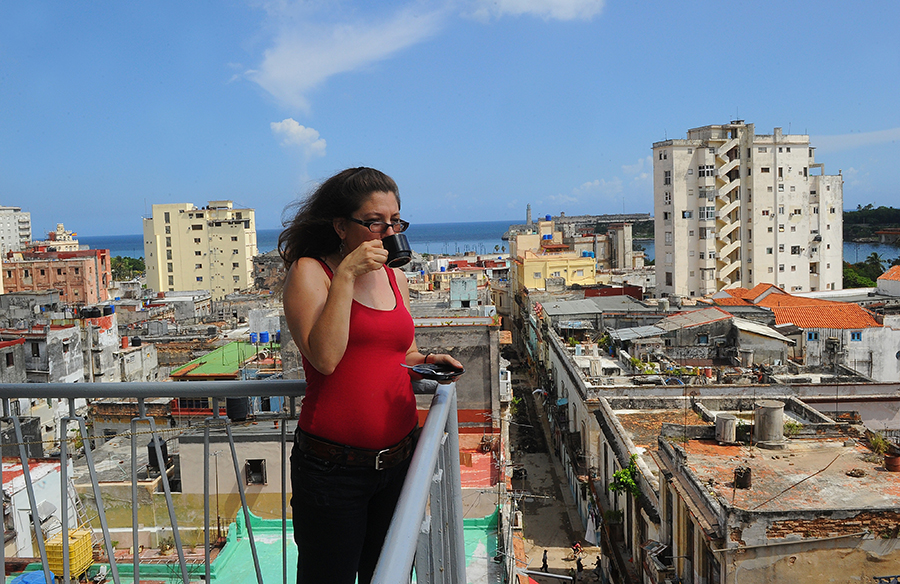
A tourist drinks a cup of coffee in the terrace of a rental house in Havana, on July 10, 2015. (AFP PHOTO/YAMIL LAGE)
To visit Cuba, you need to qualify for one of 12 categories of people who are authorized to travel to Cuba. According to the U.S. Treasury’s Office of Foreign Assets Control (OFAC) that oversees travel to Cuba, visitors in these categories are given a general license to travel. Prior to this, qualified visitors had to apply for a specific license with an application process that was determined on a case-by-case basis.
- Family visits
- Official business of the U.S. government, foreign governments, and certain intergovernmental
organizations - Journalistic activity
- Professional research and professional meetings
- Educational activities
- Religious activities
- Public performances, clinics, workshops, athletic and other exhibitions
- Support for the Cuban people
- Humanitarian projects
- Activities of private foundations or research or educational institutes
- Exportation, importation, or transmission of information or information materials
- Certain authorized export transactions.
Once you qualify for a categories, no further permission from OFAC is required to engage in transactions covered by a general license. When booking a ticket, travelers just need to check off a box designating the purpose of their trip. Airlines and travelers are responsible for maintaining records of their Cuba-related transactions for at least five years.
Another option is to join a “people-to-people” trip that has been given authorization to enter Cuba under a general license to engage in certain educational exchanges under the auspices of an organization that sponsors exchanges to promote people-to-people contact.
If you don’t qualify for any of the 12 categories, the OFAC will also consider requests for specific licenses on a case-by-case basis for travel that relates to to the categories but doesn’t exactly fall within the scope of a general license.
2. Get a visa and medical insurance from Cuba
The Cuban government may require that the traveler obtain a visa. Those seeking such a visa should visit the newly renamed Cuban Embassy in Washington. You can also obtain a visa to Cuba at an airport in any international gateway that offers service to Cuba, such as the Mexico City airport, Cheapair.com reports.
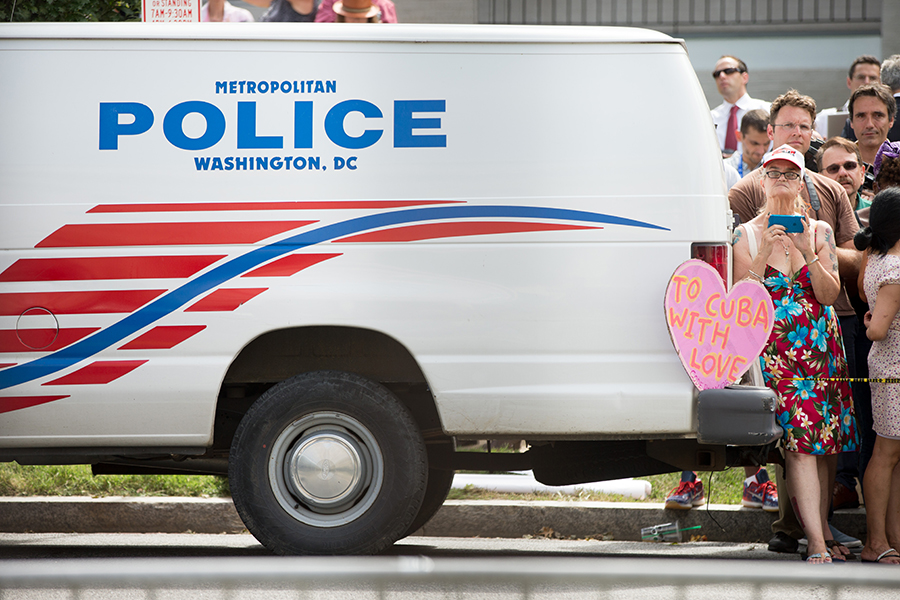
Cuba’s blue, red and white-starred flag was hoisted July 20 at the country’s embassy in Washington in a symbolic move signaling the start of a new post-Cold War era in U.S.-Cuba relations. (AP Photo/Andrew Harnik, Pool)
Cuba requires visitors to obtain Cuban medical insurance. Agents sell temporary policies at the Havana airport for about $3 per day, according to Cheapair.com. When traveling direct from the United States, the price of a flight includes a Cuban health insurance policy, the travel site said.
3. Get plane tickets
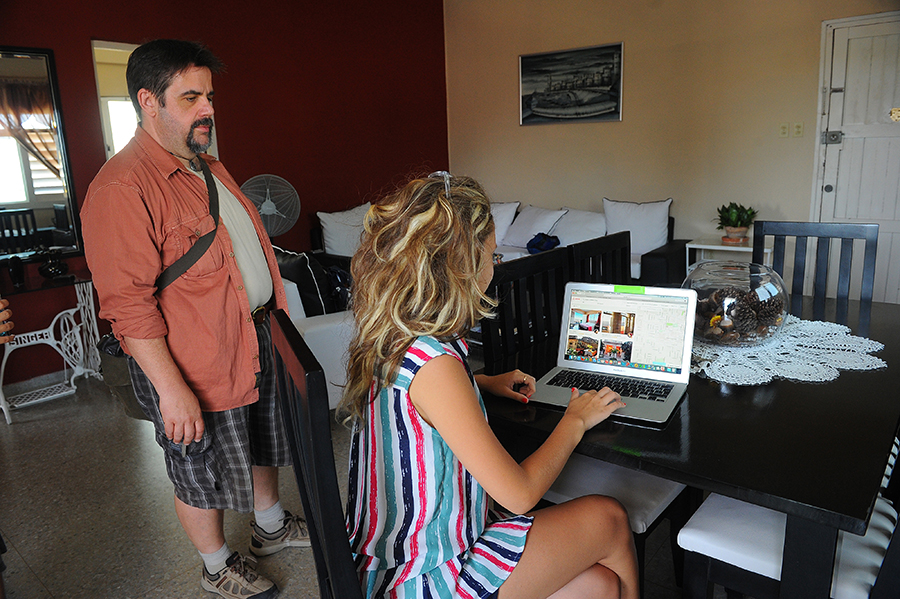
A Cuban woman provides a reservation service from a laptop in a rental house in Havana, on July 10, 2015. (AFP PHOTO/YAMIL LAGE)
In April, CheapAir.com became the first online travel agency to sell direct flights to Cuba for qualified U.S. citizens. Flights depart daily from Miami International Airport and on an abbreviated schedule from Tampa, Florida, and JFK Airport in New York. There are also a number of charter flights to Cuba via other countries.
Pretty soon ferry services will also offer trips between Miami and Havana.
4. Find a place to sleep
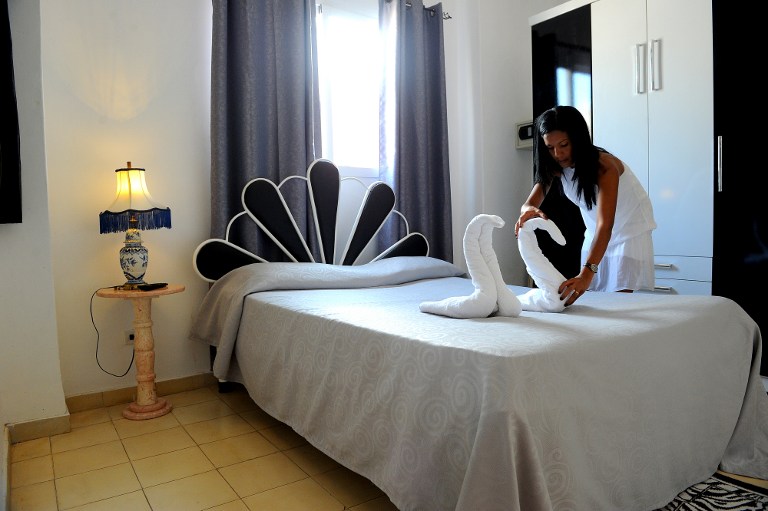
A Cuban woman tides up the bedroom for tourists in a rental house in Havana, on July 10, 2015. (AFP PHOTO/YAMIL LAGE)
Online room rental website Airbnb.com is taking off in Cuba in a big way. Also check out Casaparticular.com and Cubaccommodation.com.
5. Buy stuff, but not too much
According to the U.S. Treasury Dept., there is no specific dollar limit on authorized expenses by U.S. citizens in Cuba. Travelers will be allowed to engage in transactions typical of travel within Cuba, including living expenses and goods for personal consumption there. Travelers are also allowed to use U.S. credit and debit cards in Cuba. Just remember that when bringing items back home, merchandise bought in Cuba can’t exceed $400 per person and include no more than $100 in alcohol and tobacco products.
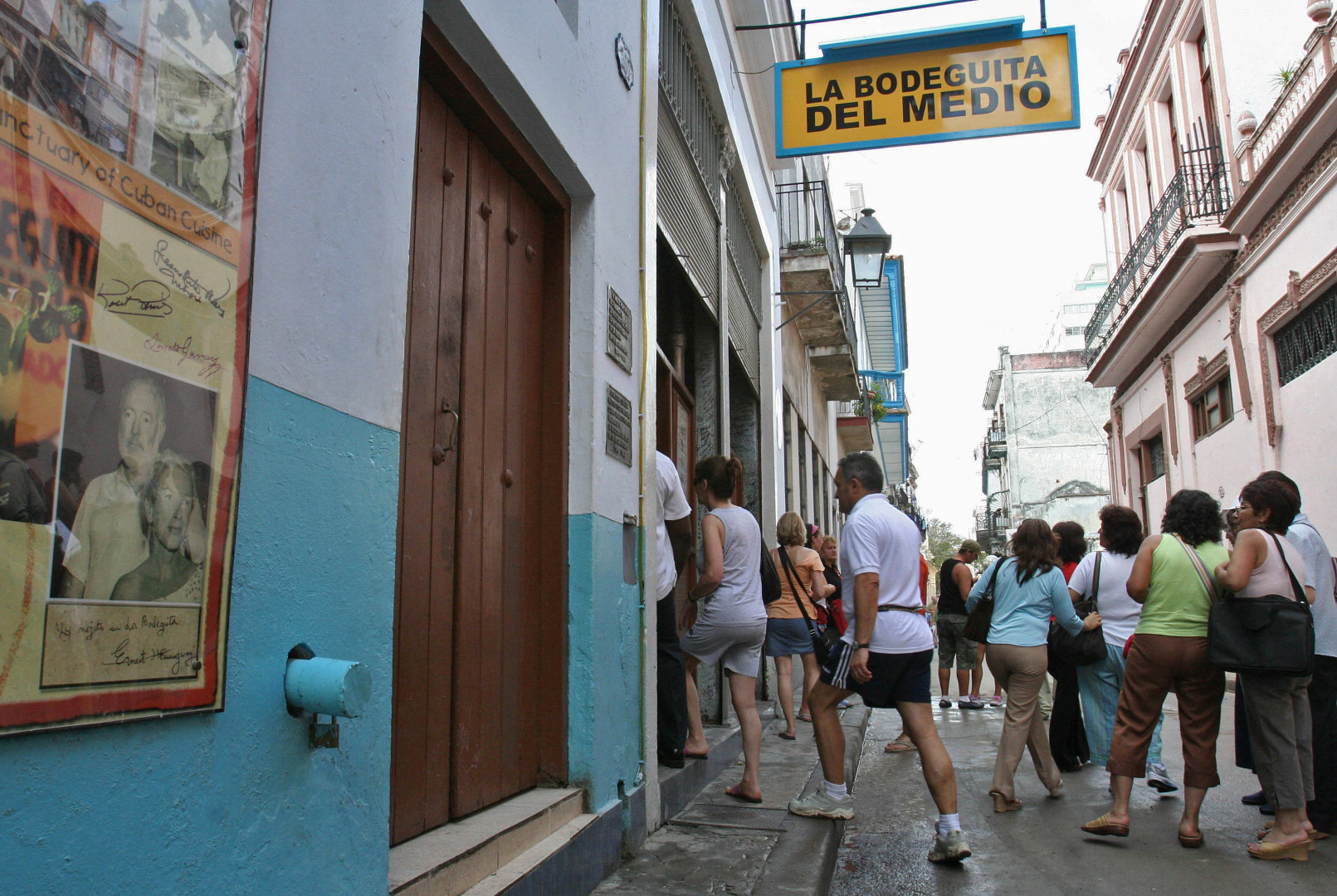
Tourists enter the Bodeguita del Medio -strongly linked to Ernest Hemingway’s life in Cuba- on February 3, 2007, in Havana. (AFP PHOTO/Adalberto ROQUE)
 CGTN America
CGTN America
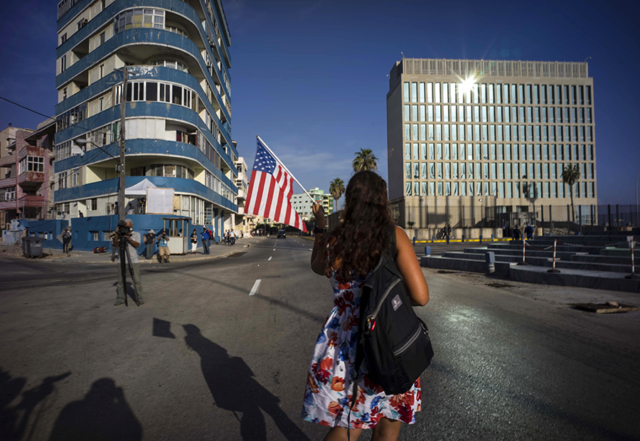 A tourist holds a United States’ national flag as she walks towards the U.S. embassy, in Havana, Monday, July 20, 2015. (AP Photo/Ramon Espinosa)
A tourist holds a United States’ national flag as she walks towards the U.S. embassy, in Havana, Monday, July 20, 2015. (AP Photo/Ramon Espinosa)
